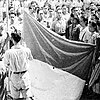Darul Islam (Indonesia)
Islamic State of Indonesia دار الإسلام إندونيسيا Dārul Islām Indūnisiyyā Negara Islam Indonesia | |||||||||
|---|---|---|---|---|---|---|---|---|---|
| 1949–1962 | |||||||||
 Flag | |||||||||
| Status | Unrecognized state | ||||||||
| Government | Islamic state | ||||||||
| Imam | |||||||||
| History | |||||||||
• Declared | August 7 1949 | ||||||||
• Rebellion of Daud Beureu'eh in Aceh | 1953–62 | ||||||||
• Rebellion of Amir Fatah in Central Java | 1950–59 | ||||||||
• Abdul Kahar Muzakkar rebellion in South Sulawesi | 1950–65 | ||||||||
• Disestablished | September 2 1962 | ||||||||
| |||||||||
Part of a series on the | ||||||||||||||||||||||||||||||||||||||||
|---|---|---|---|---|---|---|---|---|---|---|---|---|---|---|---|---|---|---|---|---|---|---|---|---|---|---|---|---|---|---|---|---|---|---|---|---|---|---|---|---|
| History of Indonesia | ||||||||||||||||||||||||||||||||||||||||
   | ||||||||||||||||||||||||||||||||||||||||
Timeline | ||||||||||||||||||||||||||||||||||||||||
Prehistory
| ||||||||||||||||||||||||||||||||||||||||
Hindu and Buddhist kingdoms
| ||||||||||||||||||||||||||||||||||||||||
Rise of Muslim states
| ||||||||||||||||||||||||||||||||||||||||
Christian kingdom
| ||||||||||||||||||||||||||||||||||||||||
European colonisation
| ||||||||||||||||||||||||||||||||||||||||
Emergence of Indonesia
| ||||||||||||||||||||||||||||||||||||||||
Independence
| ||||||||||||||||||||||||||||||||||||||||
By topic
| ||||||||||||||||||||||||||||||||||||||||
Darul Islam (meaning House of Islam [1]), also known as Darul Islam/Islamic Armed Forces of Indonesia (Indonesian: Darul Islam/Tentara Islam Indonesia, DI/TII) was an Islamist group in Indonesia that fought for the establishment of an Islamic state of Indonesia. It was established in 1942 by a group of Muslim militias, coordinated by a charismatic radical Muslim politician, Sekarmadji Maridjan Kartosoewirjo. The group recognised only Shari'a as a valid source of law. The movement has produced splinters and offshoots that range from Jemaah Islamiyah to non-violent religious groups.
Contents
1 Establishment
2 Crackdown
3 See also
4 References
5 External links
Establishment
During the Indonesian National Revolution, Kartosoewirjo founded his own band of fighters in West Java, called Hizbullah and Sabilillah. As a protest toward the Renville Agreement signed by Indonesian leaders in 1948, which ceded West Java to the Dutch, Kartosoewirjo proclaimed a Darul Islam (meaning "Islamic State") in West Java on August 7, 1949. Darul Islam did not disband itself after the transfer of sovereignty in 1949, resulting in a clash with the government of the Indonesian Republic. Rebels in South Sulawesi led by army deserter Abdul Kahar Muzakkar joined the Darul Islam Movement in 1951. On 20 September 1953, Daud Beureu'eh declared that Aceh was part of the Islamic State of Indonesia (Negara Islam Indonesia) under the leadership of Kartosoewirjo.
The movement flourished in the 1950s due to chronic instability within the central government during the Liberal Democracy Era. In 1957, it was estimated that the Darul Islam controlled one-third of West Java and more than 90% of South Sulawesi and Aceh provinces where the government only controlled the cities and towns. The movement had 15,000 armed guerillas operating under the banner of Tentara Islam Indonesia (Indonesian Islamic Army). In that year, Darul Islam agents unsuccessfully attempted to assassinate Sukarno by throwing grenades at him during a school function in Cikini, Central Jakarta.
Crackdown
Implementation of martial law in 1957, followed by declaration of Guided Democracy by Sukarno in 1959, marked the reversal of fortunes for Darul Islam. Smaller Darul Islam bands operating in Central Java under Amir Fatah was crushed by Colonel Ahmad Yani's Banteng Raiders in 1954–1957. Darul Islam forces in South Kalimantan under Ibnu Hadjar were forced to surrender in 1959. Amir Fatah was killed in 1954, while Ibnu Hadjar was eventually executed in 1962.
Three years of negotiations (1959–1962) led to a peace agreement that ended the conflict in Aceh, in which Aceh was restored as an autonomous province with special rights for Islamic law. Introduction of effective "fence-of-legs" method of encircling rebel mountain hideouts in 1959 succeeded in breaking the strong rebel grip over West Java's rural areas. On June 1962, Kartosoewirjo was captured on his hideout of Mount Geber near Garut. In captivity, Kartosoewirjo issued order for all his followers to surrender, after which he was quickly tried and executed. The last Darul Islam band in West Java surrendered on August 1962. Successive military operations also crushed the Darul Islam in South Sulawesi. On February 1965, its leader Kahar Muzakkar was killed in a military ambush in the interior of Southeast Sulawesi province, ending the Darul Islam insurgency in Indonesia.
However, despite the group being dismantled, underground networks have persisted. In the 1970s and 1980s, there were occurrences of 'Islamic' terrorism attributed to a group known as Komando Jihad. The leaders arrested from this group were found to be Darul Islam veterans.
See also
- Mujahedeen KOMPAK
References
- Dijk, C. van (Cornelis) Rebellion under the banner of Islam : the Darul Islam in Indonesia The Hague: M. Nijhoff,1981..mw-parser-output cite.citationfont-style:inherit.mw-parser-output qquotes:"""""""'""'".mw-parser-output code.cs1-codecolor:inherit;background:inherit;border:inherit;padding:inherit.mw-parser-output .cs1-lock-free abackground:url("//upload.wikimedia.org/wikipedia/commons/thumb/6/65/Lock-green.svg/9px-Lock-green.svg.png")no-repeat;background-position:right .1em center.mw-parser-output .cs1-lock-limited a,.mw-parser-output .cs1-lock-registration abackground:url("//upload.wikimedia.org/wikipedia/commons/thumb/d/d6/Lock-gray-alt-2.svg/9px-Lock-gray-alt-2.svg.png")no-repeat;background-position:right .1em center.mw-parser-output .cs1-lock-subscription abackground:url("//upload.wikimedia.org/wikipedia/commons/thumb/a/aa/Lock-red-alt-2.svg/9px-Lock-red-alt-2.svg.png")no-repeat;background-position:right .1em center.mw-parser-output .cs1-subscription,.mw-parser-output .cs1-registrationcolor:#555.mw-parser-output .cs1-subscription span,.mw-parser-output .cs1-registration spanborder-bottom:1px dotted;cursor:help.mw-parser-output .cs1-hidden-errordisplay:none;font-size:100%.mw-parser-output .cs1-visible-errorfont-size:100%.mw-parser-output .cs1-subscription,.mw-parser-output .cs1-registration,.mw-parser-output .cs1-formatfont-size:95%.mw-parser-output .cs1-kern-left,.mw-parser-output .cs1-kern-wl-leftpadding-left:0.2em.mw-parser-output .cs1-kern-right,.mw-parser-output .cs1-kern-wl-rightpadding-right:0.2em
ISBN 90-247-6172-7
^ Luthfi Assyaukanie (2009), Islam and the Secular State in Indonesia. Singapore: Institute of Southeast Asian Studies, p. xiv
External links
(in Indonesian) Ahmad Sudirman page

